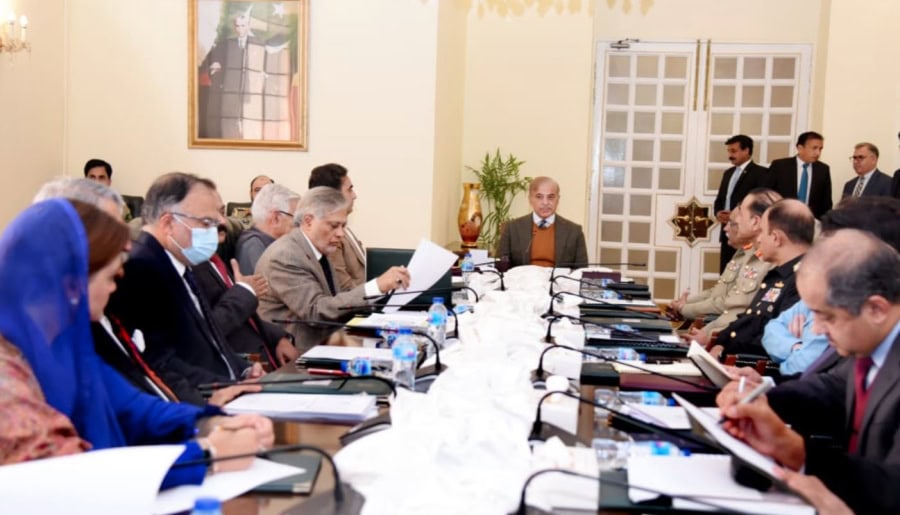Islamabad: Important decisions concerning security and the economy are expected to be taken in the National Security Committee (NSC) meeting that is set to meet again today — three days after the previous huddle in the Prime Minister’s house on Friday.
On Friday, the NSC met with Prime Minister Shehbaz chairing the meeting. Other senior civil and military officials, including the Chief of Army Staff (COAS), also attended the meeting.
The high-level meeting decided to turn up the heat on the militancy with relentless counter and preemptory measures to neutralize the threats posed to the country in any form.
In a statement, the Prime Minister’s Office said the NSC’s participants expressed an unequivocal opinion that Pakistan’s national interests will not be compromised and no one will be allowed to harm the national security.
The meeting was also briefed on the fragile economic situation of the country, but the rumors of the country defaulting were rejected completely.
وزیراعظم محمد شہبازشریف کی زیرصدارت نیشنل سکیورٹی کمیٹی (این۔ایس۔سی) کا اہم اجلاس آج اسلام آباد میں منعقد ہوا۔ اجلاس میں وفاقی وزرا، سروسز چیفس اورانٹیلی جنس اداروں کے سربراہان نے شرکت کی۔اجلاس نے ملکی معیشت اور امن وامان کا تفصیل سے جائزہ لیا۔ pic.twitter.com/E3laqPWIon
— Prime Minister's Office (@PakPMO) December 30, 2022
Rising terror wave
Over the past few months, the law and order situation in the country has worsened, with terrorist groups like the outlawed Tehreek-i-Taliban Pakistan (TTP), the militant Islamic State group, and Gul Bahadur Group executing attacks with near impunity across the country.
Insurgents in Balochistan have also stepped up their violent activities and formalized a nexus with the TTP.
The incident at the Khyber-Pakhtunkhwa police’s Counter-Terrorism Department (CTD) interrogation centre in Bannu and the botched suicide bombing attempt in Islamabad not only set off alarm bells in the power corridors but also left several countries worried about the security of their nationals.
The US, UK, Australia, and Saudi Arabia have issued advisories, asking their nationals to restrict movements in Pakistan and avoid non-essential trips.










